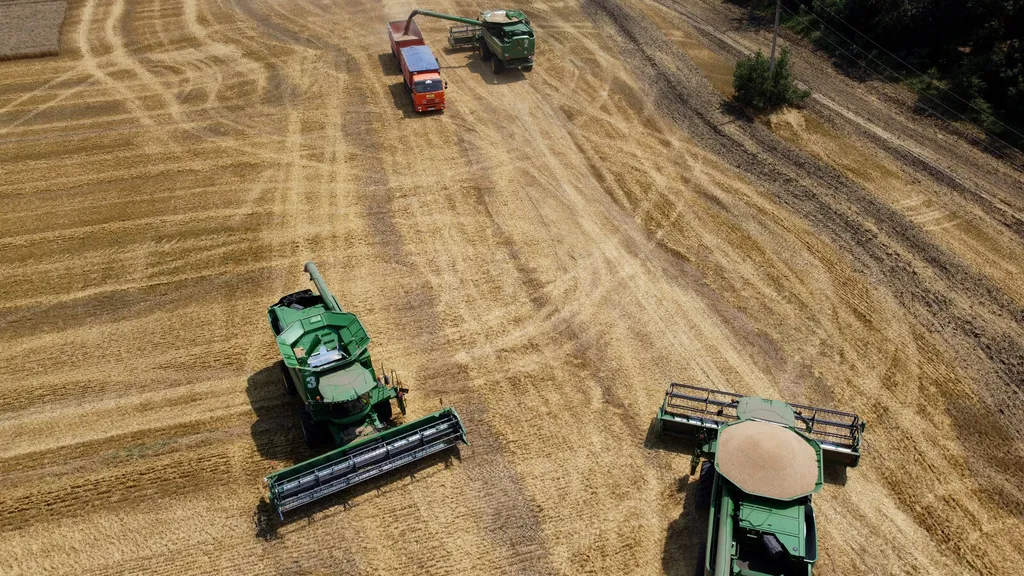Ukrainian President Volodymyr Zelensky met with Angolan President João Lourenço on Tuesday in New York, where both leaders discussed strengthening bilateral ties, with a particular focus on agriculture and technology. The meeting, held on the sidelines of the 80th UN General Assembly, underscores Ukraine’s ongoing efforts to expand its diplomatic and economic partnerships in Africa amid the challenges posed by Russia’s full-scale invasion.
In a Telegram post, Zelensky highlighted the potential for deeper cooperation, stating, *”We talked about how we can make our relations closer and more productive.”* The conversation included Ukraine’s **Grain from Ukraine** initiative, a humanitarian program that delivers grain to vulnerable countries, many of which are in Africa. Since its launch in 2022, the initiative has shipped over 170,000 tons of wheat to nations facing food insecurity, including Ethiopia, Somalia, and Yemen. Angola, while not yet a direct recipient, represents a strategic partner in the region, given its role in the African Union and its own agricultural potential.
The discussion on agricultural cooperation is particularly significant. Ukraine, long known as the “breadbasket of Europe,” has seen its grain exports disrupted by Russia’s blockade of Black Sea ports and attacks on farming infrastructure. Meanwhile, Angola—though an oil-dependent economy—has been working to diversify its food sources and reduce reliance on imports. A partnership could see Ukrainian agritech expertise, such as precision farming and grain storage solutions, introduced to Angolan farmers, while Angola’s ports could serve as alternative export routes for Ukrainian produce.
Technology was another key topic, though details remain sparse. Ukraine’s burgeoning tech sector, particularly in agricultural innovations like drone monitoring and AI-driven crop analysis, could align with Angola’s push for digital transformation in farming. Zelensky’s mention of “productive” relations suggests explorations into trade agreements or joint ventures, though no concrete deals were announced.
The meeting also carried diplomatic weight. Zelensky expressed gratitude for Angola’s support—a nod to the country’s balanced but increasingly pro-Ukraine stance in international forums. Unlike some African nations that have remained neutral or abstained in UN votes on the war, Angola has condemned Russia’s invasion and called for respect of Ukraine’s sovereignty. This alignment could pave the way for broader African support for Kyiv’s initiatives, including the **Grain from Ukraine** program, which Zelensky has proposed expanding to more African nations.
The timing of the talks is no coincidence. Zelensky’s packed schedule in New York, which includes meetings with U.S. lawmakers and corporate leaders, reflects Ukraine’s dual strategy: securing military and financial aid while simultaneously building economic resilience through global partnerships. For Angola, the engagement offers an opportunity to strengthen food security and access European-level agricultural technology without heavy reliance on traditional partners like China or Russia.
As the war grinds on, Ukraine’s ability to maintain and grow such relationships will be critical—not just for its economic survival, but for its long-term reconstruction. If realized, collaborations like the one discussed with Angola could serve as a blueprint for how Ukraine can leverage its agricultural and technological strengths to forge new alliances far beyond its borders.

